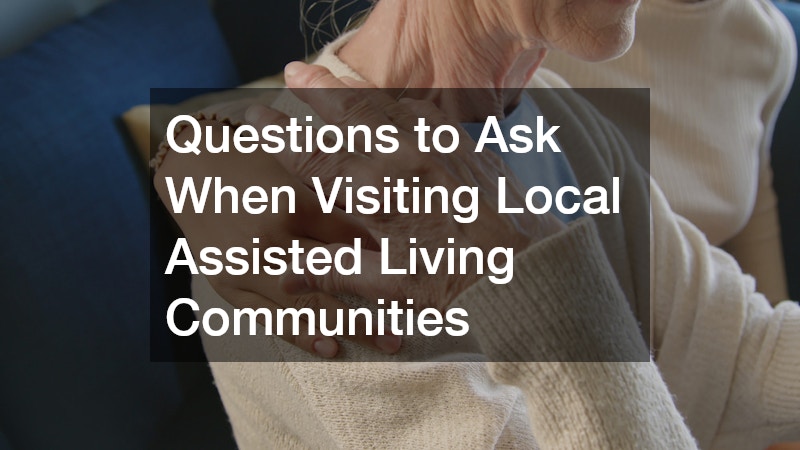When considering assisted living communities for yourself or a loved one, it is essential to gather as much information as possible to make an informed decision. This article outlines key questions to ask during your visits to ensure that you find the right fit.
A well-informed decision can only be made if you take the time to visit multiple communities and ask the right questions. It’s worth noting that no two assisted living facilities are the same, and understanding the nuances will help you find a community that meets specific needs.
This article aims to guide you in formulating those critical questions, focusing on the most relevant concerns such as care quality, available amenities, medical protocols, and the financial aspects associated with assisted living.
What is the staff-to-resident ratio, and what qualifications do staff members have?
Understanding the level of care your loved one will receive is one of the most important factors when evaluating an assisted living community. A lower staff-to-resident ratio often means that caregivers can provide more individualized attention, allowing residents’ needs to be addressed promptly and thoughtfully.
This can make a significant difference in both physical care and emotional well-being, as staff members have the time to build relationships and notice small changes in health or mood.
Equally important is the training and experience of the staff. Ask about their qualifications, including certifications, formal education, and experience in geriatric or specialized care. Knowing that caregivers are skilled in working with seniors—and that they regularly update their training—provides reassurance that your loved one is in capable hands.
What services and amenities are offered in the community?
When evaluating assisted living communities, understanding the range of services and amenities is essential to ensure your loved one enjoys a comfortable and fulfilling lifestyle. Meal service is a key consideration—ask whether the community provides three nutritious meals a day, as well as snacks and options for special dietary needs. A well-rounded dining program can significantly impact residents’ health and satisfaction.
Equally important are recreational and social activities, which support both mental and physical well-being. Many communities offer exercise classes, arts and crafts, group outings, and other organized programs designed to engage residents and foster connections. Opportunities for social interaction not only reduce feelings of isolation but also create a sense of belonging and purpose.
How does the community handle medical emergencies and health care needs?
Knowing how an assisted living community manages medical emergencies and ongoing health care is critical for ensuring the safety and well-being of your loved one. Ask about the availability of on-site medical staff and the protocols in place for responding to urgent situations. A community with well-trained personnel and clear emergency procedures can provide peace of mind, knowing that residents will receive prompt attention when needed.
It’s also important to understand how the facility collaborates with local hospitals, clinics, and other health care providers. Partnerships for transportation to medical appointments or access to specialized care can ensure that residents receive timely treatment without unnecessary stress or delay.
What is the cost structure, and are there any additional fees?
Financial considerations are a key part of selecting an assisted living community, and understanding the cost structure upfront can help you plan effectively. Start by asking about initial admission fees as well as the monthly costs, and make sure you know exactly what is included in the base price. Some communities structure fees based on the level of care required, meaning that additional services could affect the overall cost.
It’s equally important to ask about potential extra charges. Fees for activities, transportation, housekeeping, maintenance, or emergency services can add up quickly, so transparency in billing is crucial. Understanding all possible costs will help prevent surprises and allow you to budget confidently.
Finally, consider comparing pricing across several local communities to ensure you’re receiving value for the services offered. A transparent and well-documented cost structure reflects a community’s professionalism and respect for families, making it easier to make an informed decision about the best place for your loved one to live safely, comfortably, and happily.
Visiting local assisted living communities and asking the right questions can lead to a better understanding of what to expect. This exploration is not only about finding a place to live; it’s about identifying a supportive environment that meets the unique needs of your loved one.By focusing on key areas like staff qualifications, available services, emergency protocols, and costs, you will be more equipped to make an informed decision. Ultimately, the goal is to ensure a comfortable, safe, and engaging living situation for your loved one. Take your time, do your research, and don’t hesitate to visit multiple facilities to get a broader perspective. It’s essential to consider every aspect, from care quality to financial implications, in your search for the ideal assisted living community.



